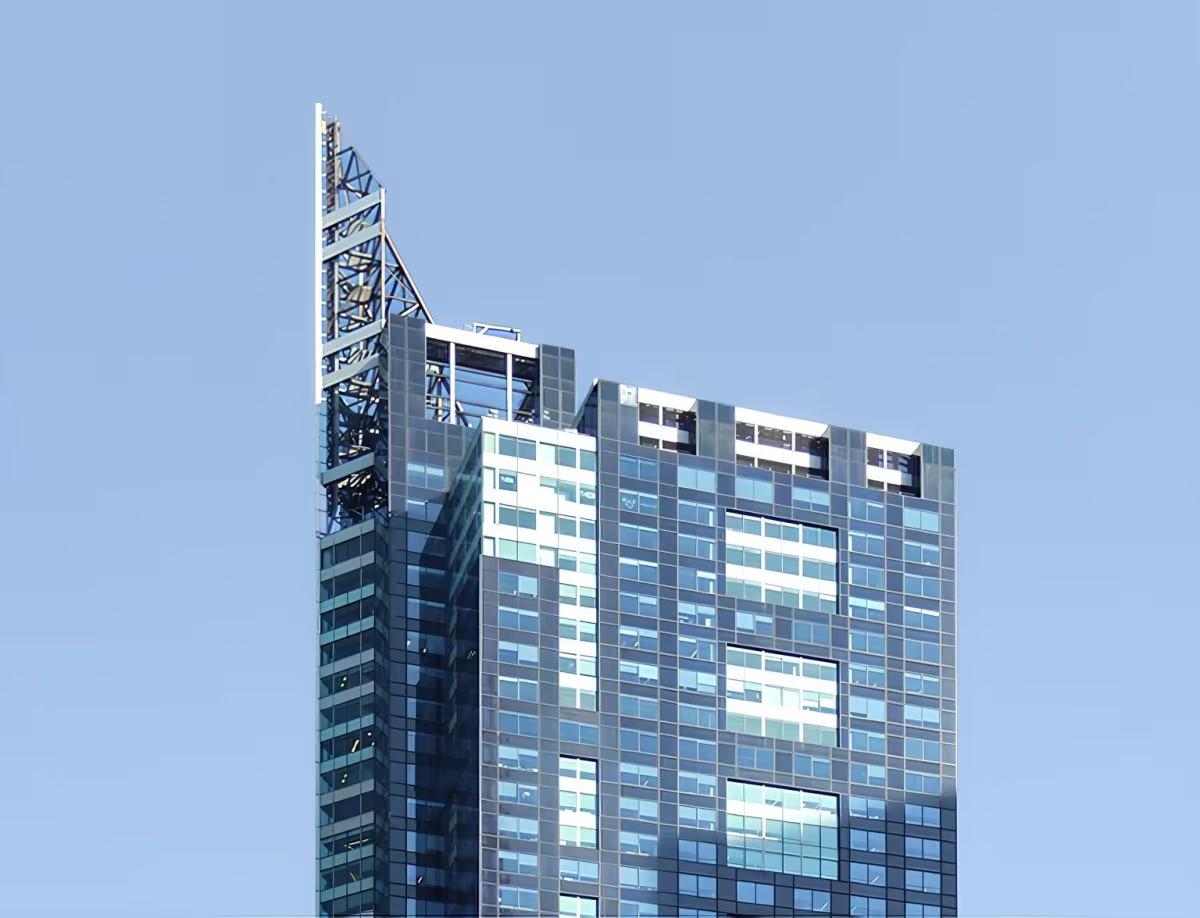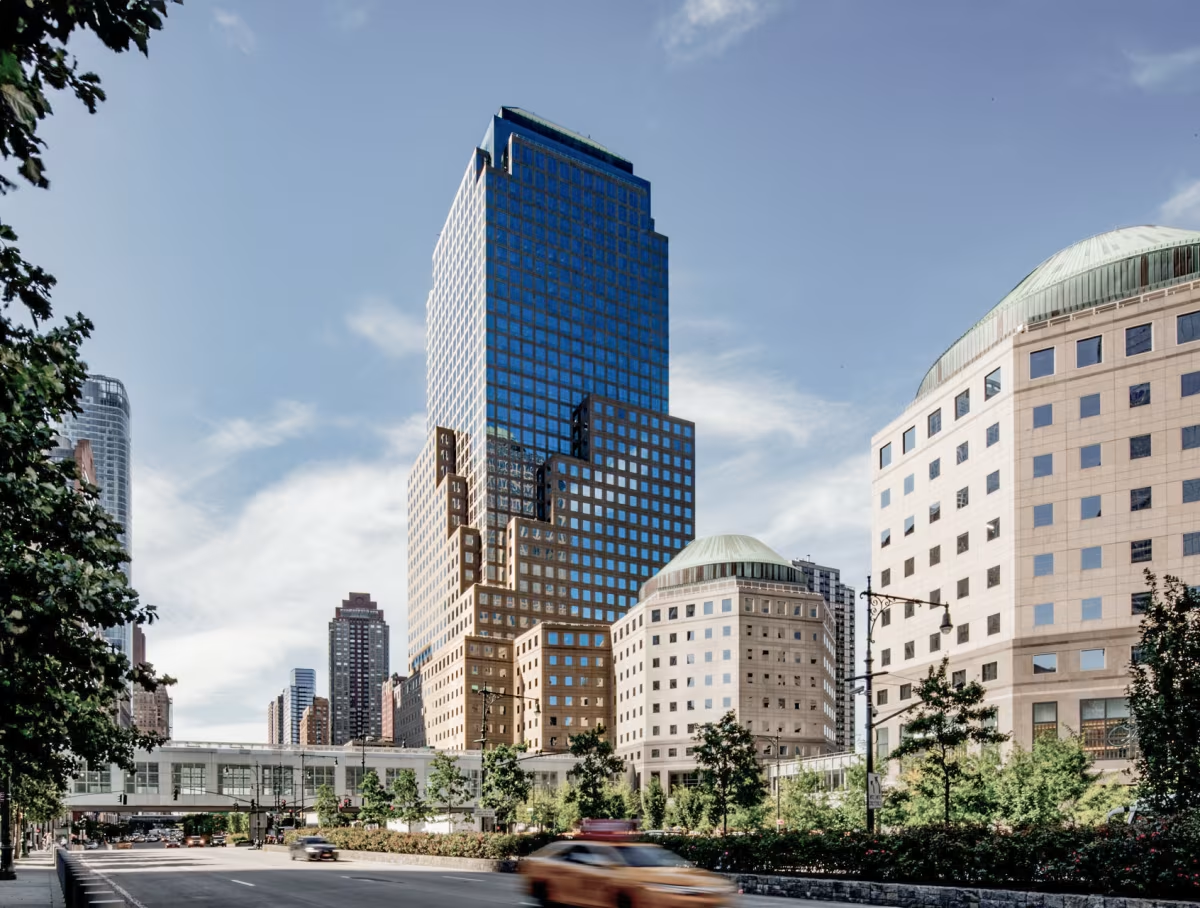1540 Broadway Building vs 200 Liberty Street Building


Comparing the 1540 Broadway Building and the 200 Liberty Street Building is interesting because they both stand in New York, NY, and were completed within 4 years of each other, but they were designed by different architects.
This offers a unique glimpse at how rival designers approached projects in the same city during the same era.
Height & Size
The 1540 Broadway Building is clearly the larger tower of the two, both in terms of height and number of floors. It rises to 617ft (188m) with 42 floors above ground, while the 200 Liberty Street Building reaches 577ft (176m) with 40 floors above ground.
Of course, each project may have faced different briefs or regulatory constraints, which we don't really know about and could also explain the outcome.
Architectural Style
Both the 1540 Broadway Building and the 200 Liberty Street Building were designed in line with the aesthetic conventions of the Postmodernism style.
At the time, this style was at the height of its popularity. So both Skidmore, Owings & Merrill and Cesar Pelli & Associates followed what was in many ways expected of them, producing designs that fit comfortably within contemporary architectural norms, rather than breaking with convention.
Uses
Both the 1540 Broadway Building and the 200 Liberty Street Building were designed to serve as commercial towers, and that has remained their main use since their completion, serving similar roles in the urban fabric.
The 200 Liberty Street Building also provides 232 parking spaces.
Structure & Facade
Both the 1540 Broadway Building and the 200 Liberty Street Building rely on a Frame structural system.
A frame structure uses a grid of columns and beams to carry the building's loads. This frees the walls from structural duties, allowing for flexible floor plans and larger windows.
They also employ the same type of facade, a Curtain Wall facade.
A curtain wall is a non-load-bearing facade hung from the structural frame. It is anchored to floor slabs and transfers only its own weight and wind loads, allowing for sleek, glassy exteriors.
| 1540 Broadway Building | 200 Liberty Street Building | |
|---|---|---|
| Skidmore, Owings & Merrill | Architect | Cesar Pelli & Associates |
| 1988 | Construction Started | 1984 |
| 1990 | Year Completed | 1986 |
| Postmodernism | Architectural Style | Postmodernism |
| Commercial | Current Use | Commercial |
| 42 | Floors Above Ground | 40 |
| 188 m | Height (m) | 176 m |
| 100,000 m² | Usable Area (m²) | 151,200 m² |
| 15 | Number of Elevators | 23 |
| Frame | Structure Type | Frame |
| Steel | Vertical Structure Material | Steel |
| Poured Concrete Over Metal Decking | Horizontal Structure Material | Concrete And Steel |
| No | Facade Structural? | No |
| Aluminum, Glass | Main Facade Material | Aluminum, Glass, Granite |
| Tishman Construction | Main Contractor | Olympia & York Battery Park Company |
| Jaros Baum & Bolles | MEP Engineer | WSP Flack + Kurtz |
| Gilsanz Murray Steficek | Structural Engineer | M.S. Yolles & Partners |
| NY | State | NY |
| New York | City | New York |
| 1540 Broadway | Address | 200 Liberty Street |